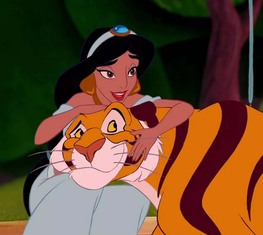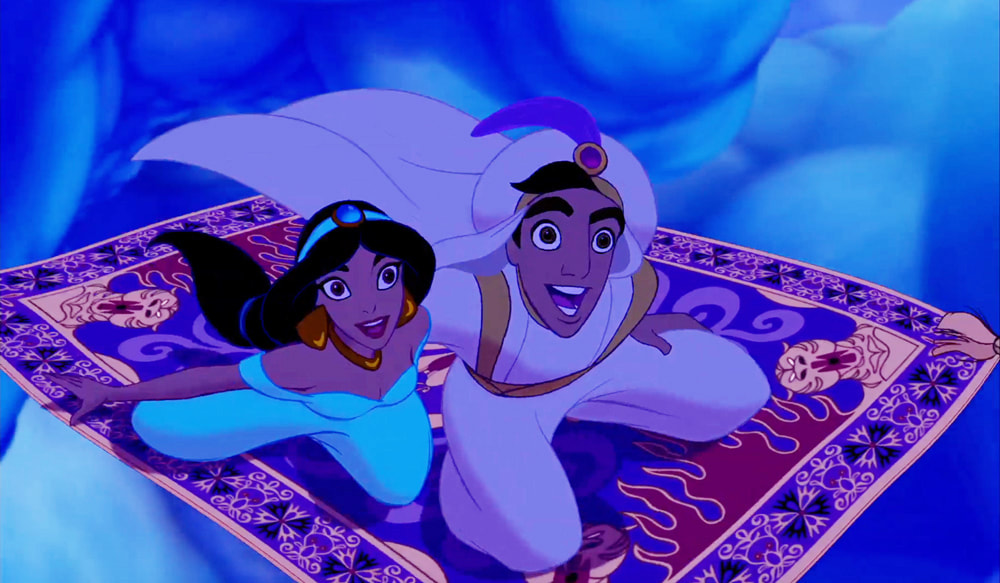|
Freedom is a great thing. It’s a fundamental building block of modern society. We take for granted our right to free speech, freedom of religion, freedom of assembly, and, for my American friends, freedom to organize a militia and revolt against the imperial overlords at the slightest hint of taxation without representation. The right to elect representatives to decide the right tax for loose leaf chamomile tea shall not be infringed. The world we live in today really is a new world. It’s less hierarchical and more socially mobile than the old world. Despite starting out in poverty, people like J.K. Rowling can make millions of dollars a year writing stories about little wizards going off to boarding school. Meanwhile, the spread of technology has democratized knowledge, giving us access to all the true crime podcasts and cat videos we want. We like our freedoms, and we’d rather nobody put restrictions on them.  If we don’t have freedom, we fight for it. The 1992 animated classic Aladdin includes a number of characters searching for freedom. They want to leave the old world behind and find their way into a new world. The princess Jasmine, for instance, feels trapped by rules and palace walls. It turns out being a royal isn’t all just wealth, privilege, and pet tigers who strike fear in the hearts of your enemies. It brings with it certain restrictions. Jasmine’s marriage prospects are limited to wealthy princes who happen to impress her father, the sultan. Commoners are excluded from the running. Though, it’s not like Jasmine has many opportunities for meeting commoners. She doesn’t even get to leave the house. In an unmistakeably symbolic moment, Jasmine flings open the door to a bird cage and lets loose a flock of doves. She watches them with longing as they soar up into the atmosphere. Here’s to hoping the doves had long, fulfilling lives and didn’t end up being served on a plate with a side of mashed potatoes the moment after they were freed. Aladdin is at the opposite end of society. As Agrabah’s most successful thief, Aladdin seems like he’s doing pretty well. He easily weaves his way through crowds and over rooftops, outwitting the authorities at every turn. With a smile on his face he sends his trusted monkey Abu to distract the merchants while he gets the goods. Breaking the rules all day long, you’d think Aladdin would feel like a free man. He can get anything for himself at no cost. Plus, he has that cool little fez he wears. What more could he want? Yet Aladdin feels just as trapped as Jasmine. Prince Achmed, one of Jasmine’s many suitors, calls Aladdin “a worthless street rat,” saying, “You were born a street rat, you'll die a street rat, and only your fleas will mourn you.” That’s a little unfair. I’m sure the rodents of Agrabah would show their solidarity as well. But maybe that’s a small consolation when you’re constantly on the run, with guards pointing their swords at you on every corner.
Comments
|
David Raphael HilderJoin the conversation as we explore the best there is in fantasy, sci-fi, adventure, and of course, the classics Archives
December 2020
Categories
All
|

